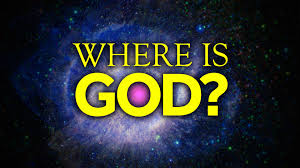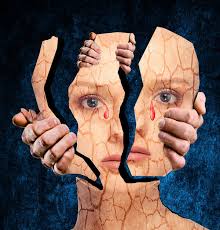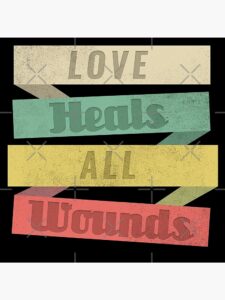TO ENJOY THE MUSIC IN TODAY’S POST, PLEASE CLICK THE LINK ABOVE IN YOUR EMAIL, OR click here.
From our archives I found this most intriguing question of all — from Joe Nagy.
Last week I went to a panel discussion on “Where is God?”.
It was held to address one of the most vexing questions any of us –- believer, agnostic, or atheist –- faces:
How can we affirm that life is good when so many innocent people suffer?
The discussion was in response to the massacre of 20 five- and six-year-olds and six teachers at the Sandy Hook Elementary School in Newtown, CT.
There were four panelists from three different faith traditions. Each had long experience in pastoral care. Each gave witness to how he or she ministers to those who have suffered or witnessed traumatic loss.
Rev. Wayne Detzler, a United Church of Christ minister, had a job that no one would envy: as chaplain to the local fire and police departments, he was on call whenever there was a sudden or traumatic death.
Whenever his phone rang, day or night (and it often rang after midnight) someone had died a frightful death: car accident, plane crash, fire, murder, suicide, the sudden death of an infant.
His job was to minister to the survivors and the first-responders.

What a job! How many people are lining up to do that?
It reminded me of a quote that I ran across from the German philosopher Friedrich Nietzsche. I can only paraphrase, but it went something like this:
“If you could put your ear to the heart chamber of the world, and hear the innumerable shouts of joy and pain, you would surely go mad.”
I’m sure that Rev. Detzler has experienced more than his share of heartbreak, but his soul seemed to be intact. What had he learned from his experiences? Do not attempt to counsel.
- Do not attempt to console.
- Avoid explanations.
- Do not offer pieties.
- Just be there.
- Be a caring presence.
- Weep with them.
- Pray with them.
Indeed, it is the oldest lesson in pastoral care in the Bible:
When Job suffered the loss of his loved ones, his wealth, and his health, all in one horrible day, his friends came and sat beside him for seven days and nights without saying a word. The truth is that there is no explanation for innocent suffering.
And that is a hard truth to swallow.
At the end of the presentation, one of the students in the audience raised his hand.
“But you haven’t answered the question! How could a loving God allow this to happen?”
Two of the panelists gently responded.
- The Catholic theologian talked of free will.
- The rabbi suggested that God was not an entity manipulating the world, but a spirit of love.
I’m sure that the student went away unsatisfied.
Afterwards I asked myself: What would that young man have liked to happen?
God should intervene and stop the killer – maybe cause his gun to jam.
But what about the innumerable murders, assaults, and rapes taking place every day?
A loving God should stop those too.
And the children dying in cancer wards in every hospital in the world? They must be saved.
All disease must be eradicated. If we are going to eliminate unearned suffering —
- We must demand that no one be born with a disability.
- We must eliminate poverty and discrimination.
- We must do something about the inequities of wealth and power that doom three-quarters of the world’s population to misery.
The logical conclusion to expecting divine intervention in our world is to eliminate all suffering of every kind.
- No one would be allowed to be evil.
- No one would be allowed to be unhappy.
It would be pretty, but we would not be human.
If we got what that young man wished for, we would be robots. Eliminating evil and suffering would also eliminate —
- courage,
- charity,
- compassion,
- perseverance,
- forgiveness,
- self-sacrifice,
And every other virtue that makes human beings noble.
And worst of all, it would eliminate love. Because love and perfection cannot exist together.
Who can love and not at the same time be heartbroken?
- We love despite our brokenness, and the brokenness of the beloved.
- We love inadequately.
- We love in the knowledge that we are not worthy of the beloved.
I don’t know of any other kind of love.
Love heals the wounds of life. No wounds – no need of love. That doesn’t answer the young man’s question.
But I suspect it is all we are going to get.
Just a thought…
Joe Nagy
I selected the Miles Davis classic, So What, to match with Joe’s post.
TO ENJOY THE MUSIC IN TODAY’S POST, PLEASE CLICK THE LINK ABOVE IN YOUR EMAIL, OR click here.




